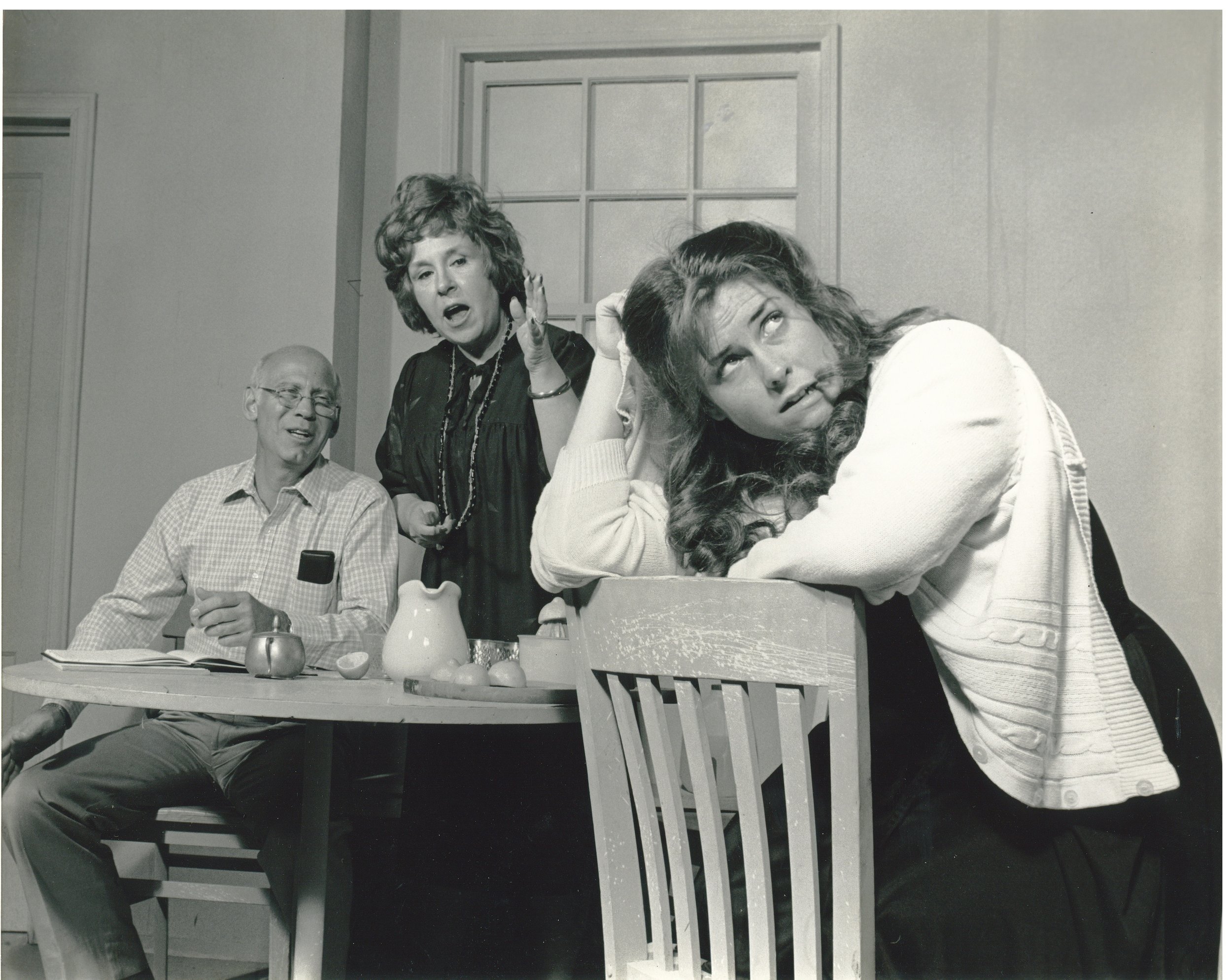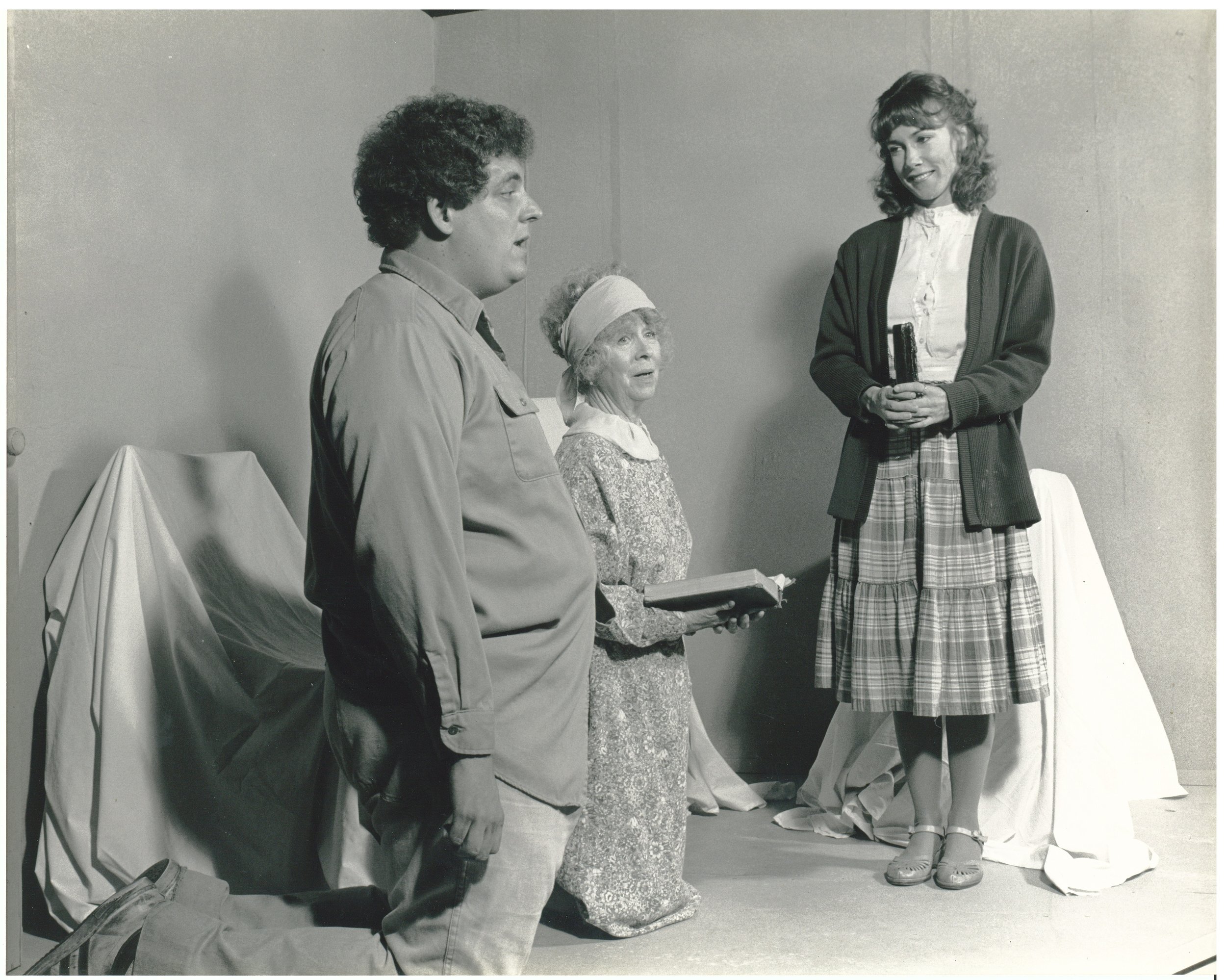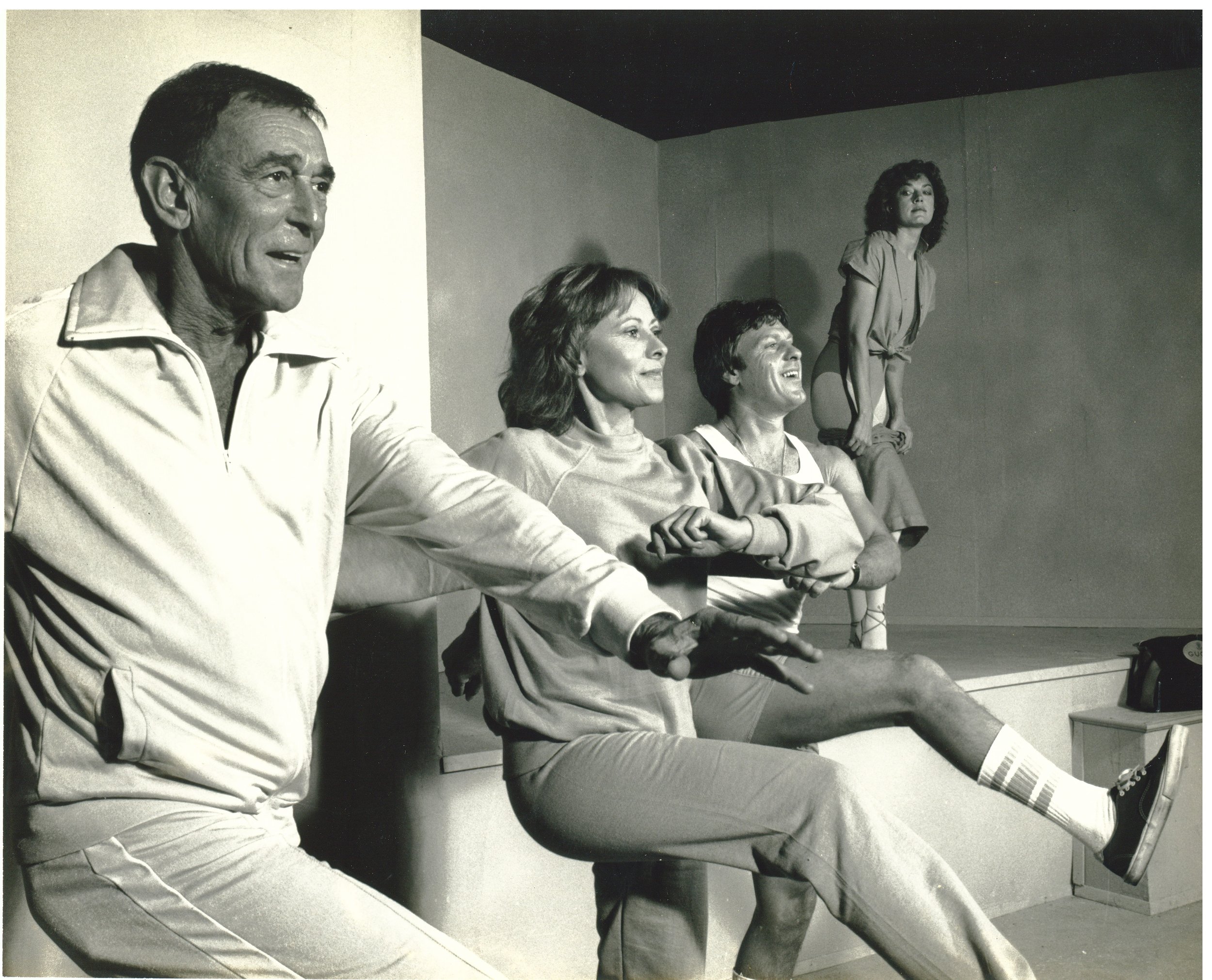TITLES:
24 Hours AM
24 Hours PM
About the plays:24 Hours was developed as part of the Playwrights Lab at Back Alley theater in Los Angeles, California. The show began as a challenge posed by director and playwright Oliver Hailey. Specifically, he asked the playwrights of the Lab to create a short play of no more than 5 minutes, consisting of no more than four actors and set at a specific hour of the day or night. While over 100 plays were submitted, only 24 entered rehearsal in two parts, AM and PM. The show featured 16 actors included John Anderson, Elizabeth Hoffman, Jim Hornbeck, Alan Oppenheimer, and Doris Roberts in AM; Phillip Allen, Sandy Kenyon, Van Bettin, Peter Van Norden, Mary McCusker, and Maxine Stuart in PM. Directing the pieces were Alan Oppenheimer, Dona Cooper, Will Mackenzie, Marcia Rodd, Beverly Sanders, and Barbara Schultz. With paired down sets and props the shows were a hit. So much show that a war for publishing rights ensued. At the time, 24 Hours received the largest advance ever offered for a play.
24 Hours - AM
Allan Miller, David Link, Jeff Levy, Daniel Gregory Browne, Terry Kingsley-Smith, Michael Leeson, Lee Thomas, Jerry Mayer, Pamela Chais, Christine Rimmer, Bonnie & Paul Zindel, Susan Silver
24 Hours - PM
Jim Mcginn, Sam Bobrick, Ann Raymond, Jack matcha, Michael Lewis, Oliver Hailey, Dona Cooper, Marcia Rodd, Rick Lenz, Fredi Towbin, Beth Henley



Photographs used with permission.
HOLLYWOOD REPORTER
”Oliver Hailey’s concept of a program of 24 playlets, one for each hour of the day, is not only highly successful in terms of showcasing diverse styles, moods and playwrights, but highly effective as an organic event.”
- Laura Hitchcock, The Hollywood Reporter, November 3, 1982 .
LOS ANGELES HERALD EXAMINER
"It’s thrilling to see that qulaity entertainment can be produced in concentrated form.”
- Patricia Freeman, Los Angeles Herald Examiner, October 26, 1982 (Section D, Page 1).
MALIBU TIMES
”It packs more insights and humor into its 7 or 8 minutes than most romantic comedies manage in a full evening.”
-Sam Birnkrant, The Malibu Times, November 5, 1982 (Vol. XXXVIII-No.34).
PREMIERE MAGAZINE
"“In the course of two hours (and twelve separately titled scenes), you will be amused, enthralled, and touched.”
-R. Cullen Fink, Premiere Magazine, Dec/Jan (Page 5).
DATA-BOY MAGAZINE
”The variety displayed here is tremendous. From birth to death and everything in between, these writers have it covered. Every few moments you experience new characters and new situations. There is sure to be something for everyone here.”
-Many Minis, Data-Boy Magazine, October 26, 1982.
DRAMA-LOGUE
”…the plays not only follow the sun, they follow a winding path of introspectionism with approaches to the human condition as varied as the visions of the 24 playwrights. We congratulate the experienced playwrights who continue to probe their particular ideologies in this short form, and the newer writers who have given us an exciting glimpse of what they may accomplish in longer works.”
-T.H. McCulloh, Drama-Logue, October 14-20, 1982.
About the Back Alley Theatre
The Back Alley Theatre, founded by and led by producing directors Laura Zucker and Allan Miller, grew from a fledging volunteer organization in 1979 to a professionally run nonprofit that ranked among the ten largest budget theatres in Los Angeles by the time it closed in 1989. The Back Alley Theatre’s purpose was to present original plays and works new to Los Angeles audiences in collaboration with the best of LA’s professional talent pool. The theatre’s focus was on unique voices and on creating daring and emotionally rich experiences in an atmosphere of professional discipline. During the ten years it existed it produced more than 30 plays in its home facility in Van Nuys, transferred productions to other small and mid-sized theatres in Los Angeles, toured productions throughout California, and moved a production Off-Broadway to the Roundabout Theatre in NYC (THE FOX). Plays originated at the Back Alley were produced all over the country, including on Broadway (A WOMAN OF INDEPENDENT MEANS). Many were published and distributed nationally.
The Back Alley was the most established professional theatre in the San Fernando Valley, which had 1.5 residents at that time. It served this population by producing creative, provocative dramatic production in the area in which its audience (as well as Zucker and Miller) lived and worked. Valley residents made up more than 75% of the theatre’s subscription audience. Productions were exceptionally well attended, averaging more than 80% capacity. More than 20,000 people a year saw productions at the Back Alley, and among its marketing innovations was the theatre’s conception and implementation of the first group subscription plan in the history of Los Angeles: the L.A. Theatre Pass. This project, which began in 1985, was a partnership of five smaller theatres: The Matrix, the Odyssey, Stages, LA Theatre Work, along with the Back Alley and brought in more than 2,600 passholders in its first year.
Among its funders, the theatre counted the City and County of Los Angeles, the California Arts Council, the National Endowment for the Arts, the Rockefeller and the W. Alton Jones Foundations, and the California Community Foundation. The Back Alley had two active volunteer support groups: the Producer’s Circle and the Members’ Club. The theatre was well-known for its highly successful annual fundraiser, a celebrity doodle auction.
The theatre was named because the entrance to the warehouse-converted space was off an alley on Burbank Blvd. just east of Sepulveda. Although it started with only 45 seats, and eventually grew to 93 seats, the facility was notable for its large stage and high ceiling. The theatre, which began renting the back half of the building (formerly a theatre known as Words and Music) took over the entire building as it grew. In 1986 a consortium of the board of directors bought the building and leased it to the theatre at cost.
The Back Alley’s leadership had aspirations to grow into the first mid-size theatre in the San Fernando Valley. While early indications were hopeful, including a line item in the state budget to renovate a historic post office building in Van Nuys, a development feasibility study undertaken in 1988 indicated that the needed fundraising goals would be hard to achieve. In 1989 the decision was made to end operations and the theatre went through a planned closure process: the building was sold, all bills paid, and all obligations to ticket holders fulfilled. (Reprinted with permission from Laura Zucker.)
About the Writers Lab
For three years the Back Alley hosted a Writers Lab to support Los Angeles playwrights. The Lab, conceived of and headed by Oliver Hailey, included two Pulitzer Prize winders among its members, and developed two projects which were fully produced: 24 HOURS and HOT AND COLD. Original Production featured 16 actors in two ensembles playing 50 roles. They included John Anderson, Elizabeth Hoffman, Jim Hornbeck, Alan Oppenheimer and Doris Roberts in AM; Phillip Allen, Sandy Kenyon, Van Bettin, Peter Van Norden, Mary McCusker and Maxine Stuart in PM. Allan was the supervising director, with individual pieces also directed by Dona Cooper, Will Mackenzie, Marcia Rodd, Beverly Sanders, and Barbara Schultz.




